David Stairs
If you thought soft drink marketing in America was a ferocious business, you ought to visit Uganda. First off, it’s a lot hotter here. Even during the rainy season, when the temperature dips into the low 60s or high 50s at night, it can be murderously hot from 11am ’til 4pm. Because of the evenness of the climate, micro-organisms reproduce at a brisk rate. Ask any occasional traveler to Africa and you’ll hear personal stories about “Montezuma’s revenge.” Bottom-line, the water in Africa is often not potable. Since my last residence here, restaurants, and even personal friends, have begun making a point about how they boil their water, making it, well, a little friendlier to an outsider’s gastro-intestinal tract. The hoary Victorian nostrum that Africa is “…the graveyard of the white man,” has been reduced by the widespread distribution and acceptance of soda pop. But the notion of contamination is so deep-seeded that Africans themselves drink their Cokes with straws, the better to avoid deadly exposure to what? The universally refilled bottles, perhaps.
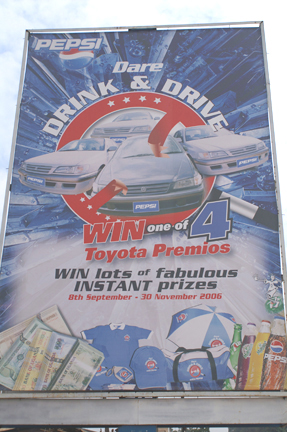
Pepsi-Cola and Coca-Cola are two of the African continent’s largest employers, and that fact trickles down to include fat advertising and media budgets. But look at what this translates into. The Pepsi “Dare” campaign, just ended November 30th, takes one of America’s clearest taboos and sits it on its head. The message, conflated by associations of Africa’s fascination with road-rally driving, is the sort of reverse-PC message to bring tens of thousands of irate MAAD members onto the streets. Then again, driving in Africa’s anything but by the rules, and anti-drunk-driving campaigns are seasonal and low key, like this small Nile Brewery sign.
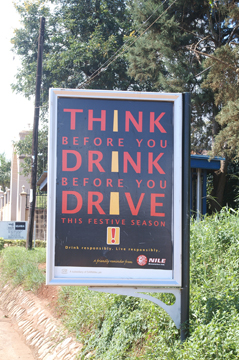
photo by Chris Stairs
Where Coke itself is concerned, if you discount the cultural incongruity of putting “Christmas Truck” ads on Ugandan television, the campaigns have been rather more benign representations of goodwill. Last summer’s boards, still visible in many places, promote the World Cup (“We All Speak Football”). This will likely be a huge point of entry in three years’ time, when the international competition moves on-continent to South Africa.
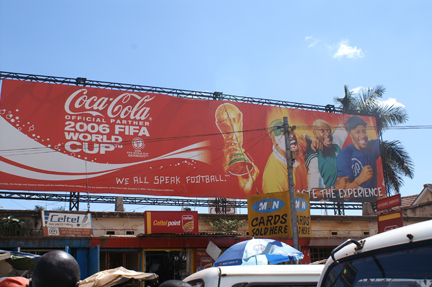
photo by Chris Stairs
But another Coke product, Fanta orange soda, is a different story. Here, a series of smiling young people, either a couple of goofy guys, or, as in this case, a young woman, introduce a new feminine-shaped bottle with the slogan, “Live Large. Stay Bamboocha.” 60s icons, like the swirling acid-orange paisley sperm/splashes, and her enormous ’fro, suggest this is the work of someone from outside Uganda, and the language verifies it.
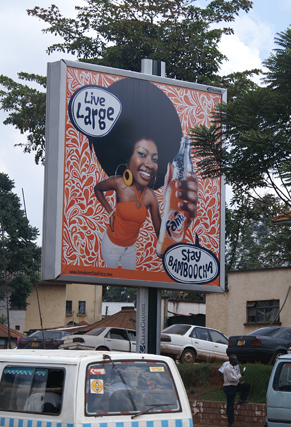
photo by Chris Stairs
The word bamboocha, halfway between bamboozle and babushka, is a Zulu word meaning orange. Since Zulu is far from indigenous to Uganda, this campaign was likely developed in South Africa. The omni-sexual references, one friend thinks the bottle resembles a studded condom, may be over the top for soda pop, but not for Africa.
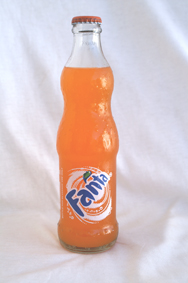
Ironically, Uganda’s a very spiritual place. People, if not born-again, are generally devout, attending church, temple, or mosque on a regular basis. As a traditional society, respect for the past has deep roots. Folks generally are not into promoting drunk driving or sexism. And yet, there is little or no regulation of advertising here, with monster three-storey billboards sprouting like mushrooms at every key marketplace and roundabout. There would seem to be dissociation between this world and the next in a fatalistic society, at least where the economics of marketing soda pop are concerned. Perhaps the fleeting pleasure of a sweet fizzy drink is considered worth the erosion of public space in a torrid climate. Don’t ask me. I’m too busy trying to stay Bamboocha.
David Stairs is the founding editor of Design-Altruism-Project.

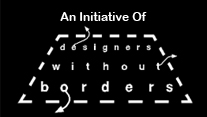



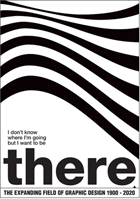
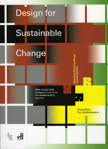
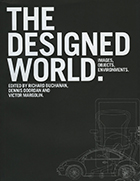



December 5, 2006 at 1:33 pm
Does the Fanta bottle fit in the cup holder in my BMW? Good to know that solid American advertising is helping drive African kids towards the sugary sweet carbonated drinks. Go America. I foresee millions of African kids in the near future walking around with rotten teeth and ulcers in thier belly from years of drinking nothing but Fanta orange. Fanta, Fanta, don’t you want ‘ta? I cannot say Fanta without reciting that ad jingle. So the next wave of American advertising In Uganda will come from Bud, Coors and Miller? Or maybe evey Joe Camel? Anyway, stay cool in Africa Stairs. It’s 24 degrees here in Detroit. Don’t you just miss Michigan? Kos.